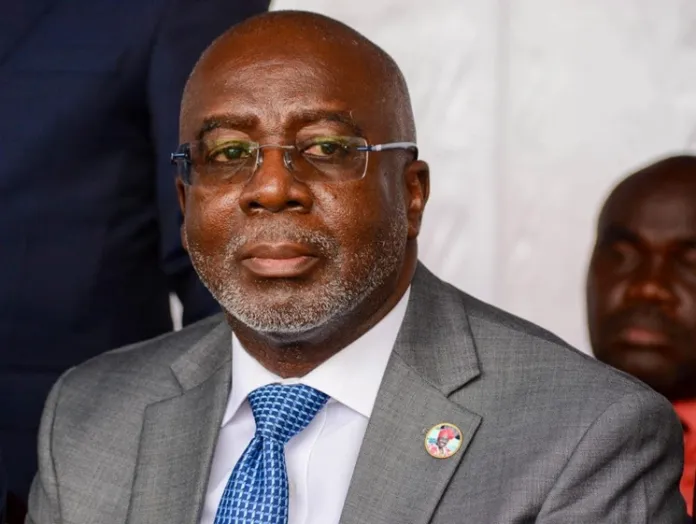A potential conflict is emerging between the Legislative and Executive branches of the Liberian government following a rare outburst from Speaker of the House of Representatives, J. Fonati Koffa, on Tuesday, June 18. Speaker Koffa issued a stern warning to potentially shut down the Lower House due to grievances over the withholding of benefits for lawmakers by the executive branch.
The threat to shut down the first branch of government came after Liberia Revenue Authority (LRA) Commissioner General, Dorbor Jallah, reported that the LRA had exceeded its revenue target by nearly US$8 million, marking an over 7 percent increase. “As of yesterday, we were supposed to raise US$308,612,000. To date, we have raised US$316,449,000, about US$7.8 million more than projected,” Jallah stated.
Jallah highlighted that domestic tax collections had reached US$215 million, US$2.6 million above target, while customs revenue hit US$101.9 million, exceeding the goal by US$5.2 million. Overall, the LRA has collected 45% of the projected annual revenue.
An enraged Speaker Koffa expressed disbelief, stating, “It is astonishing to me that the Commissioner General would report over-performing on revenue, yet the House of Representatives, part of the first branch of government, cannot receive budgeted benefits.” He lamented that lawmakers are forced to borrow money for basic needs.
Koffa criticized the Executive branch for impeding the House’s operations by failing to provide logistical supplies and benefits for members, noting a three-month delay in payments. “We should not be in the position of going on the street to credit money from money changers to provide our members with gas. We should not be in the position where the instruments that lawmakers use to come to work every day cannot be provided for them because y’all say there’s no money at Finance,” he bemoaned.
The Speaker also highlighted the disparity in treatment between the Senate and the House of Representatives, with the House receiving significantly fewer benefits despite the reported success in revenue generation by the LRA. “The action of the Executive is leading us to a dangerous conclusion—one which must have been made in the interest of coordination as branches of government. And we are prepared in the House of Representatives to make any sacrifice if the Commissioner General says revenues are not performing, we will be the first to understand.”
“But for the Commissioner General to say that revenues are over-performing and the Senate is well taken care of and the House of Representatives has received almost only two months’ worth of benefits since January and can’t get money for retreat but have to go beg NGO to have a retreat?” Speaker Koffa asked rhetorically.
He added, “If we can’t come to a resolution pretty soon, we will shut the House of Representatives down.” Constitutionally, if one House is shut down, the other House is compelled to also shut down after five working days.
The Speaker’s frustration stems from the lack of resources for the House of Representatives, including funding for its planned maiden retreat for 73 members, despite the LRA’s reported revenue surplus. The discrepancy in funding for the House’s retreat, contrasted with the Senate’s government-sponsored retreat, has raised concerns about equity and support for lawmakers in fulfilling their duties.
The comments made by the LRA Commissioner General regarding revenue performance further exacerbated tensions. Jallah indicated an excess in revenue generation while certain State-Owned Enterprises, including the National Port Authority and National Fisheries, had not contributed as expected. He urged lawmakers to help the LRA generate more revenues to support the budget.
The impending threat of a potential shutdown by the Speaker underscores the severity of the situation and highlights the urgent need for resolution and cooperation between the Executive and Legislative branches of the government.
Meanwhile, reports suggest that the House of Representatives is expected to have its four-day retreat supported or funded by NGOs, in contrast to the government of Liberia fully sponsoring the Senate’s retreat.

